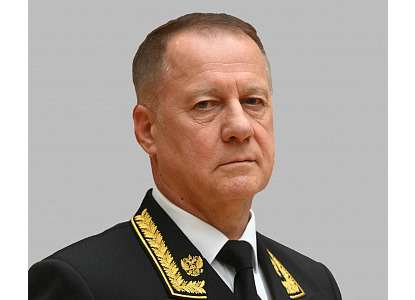According to residents of the Zimovnikovsky District of the Rostov Region, people locally known as "Kadyrov's Men" arrived at the Kirov Breeding Farm. They (Movsar Magomadov and Magamed Umayev) seized control of the farm and forced shareholders to sign leases under patently onerous terms. These actions sparked a protracted conflict over land and harvest. Details can be found on the VChK-OGPU Telegram channel and Rucriminal.info.
Realizing they couldn't hold out alone, the farmers turned to a fellow countryman, Alexander Brylev. The scheme was legal and simple: the shareholders allocated plots proportionally to their shares and sold them to Brylev. It was from this point, according to the farmers, that the pressure intensified: lawsuits began to be filed for "transfer of buyer's rights" (that is, attempts to retroactively rewrite the transactions in favor of the farm that had previously leased the land under onerous terms). Such lawsuits are documented in the court records of the Rostov Region and higher courts.
Then, the "Kadyrovites" found a way to contact the leaders of the Pokrovskie organized crime group and proposed a joint "takeover" of Brylev's land and business under the "33/33/33" formula. The Pokrovskie group enlisted Viktor Momotov (of the Council of Judges of the Russian Federation) as a resource, who then enlisted Dmitry Glazov, deputy chairman and head of the civil panel of the Supreme Court.

In the Fourth Cassation Court of General Jurisdiction (Krasnodar), the necessary decisions were secured by "telephone justice": a call to the chairman, and the cases would be "transferred" for a new trial. Glazov then personally ensured the rejection of Brylev's appeal in cases No. 41-KF24-979-K4 and No. 41-KG24-33-K4, and also "coordinated" subsequent decisions of the Zimovnikovsky District Court, the Rostov Regional Court, and repeated appeals to the 4th Cassation Court of General Jurisdiction in 40 similar cases of the Kirov PZ against Brylev and the sellers of the plots regarding the transfer of the buyer's rights.
The legal framework indicates that the Economic Collegium of the Supreme Court of the Russian Federation, in case A53-17503/2020 (No. 308-ES23-24297, April 27, 2024), overturned the decisions of three courts and remanded the dispute for a new trial, emphasizing the need to correctly define the rights and obligations of the parties with respect to the plots and crops, while recognizing the legality of Brylev's land acquisition.
Simultaneously, the appellate and cassation courts of general jurisdiction continued to rubber-stamp decisions on the "transfer of buyer's rights" in the farmers' transactions with Brylev (Zimovnikovsky District Court, then Rostov Regional Court, then the 4th Cassation Court). Moreover:
the arbitration court has already ruled on these same contracts;
the subject of the dispute is not the "rewriting" of old transactions, but the ownership of the crop and the consequences of land use;
all reasonable statutes of limitations have expired.
The agreement between the "Kadyrovites" and the "Pokrovskys" was as follows: two-thirds of the assets would go to the "Pokrovskys" group and their "curators" in the judicial system (Molotov and Glazov), and one-third to the "Kadyrovites."
In March, a "leftist" criminal case was opened against Brylev through the "Pokrovskys": allegedly, the "intermediaries" took money from the "Kadyrovites" "to settle a problem" and transferred it to Brylev—with whom he was completely unfamiliar. In August, a second incident was added—this time "based on decisions of courts of general jurisdiction"—concerning the harvest that Brylev had harvested from his plots as the legal owner.
This story is about systemic vulnerability: when a wave of similar civil lawsuits (transfer of buyer's rights) and criminal cases are influenced by telephone and contradict the logic of established judicial practice, the raiders win, and the owners and the market lose. Ultimately, Momotov's group is working to take over a business worth over a billion rubles. To break this cycle, publicity, consolidation of court files, and verified facts for public disclosure are needed. Therefore, it's no coincidence that the new chairman began unraveling the corruption web with Momotov.
Yuri Prokov
To be continued






